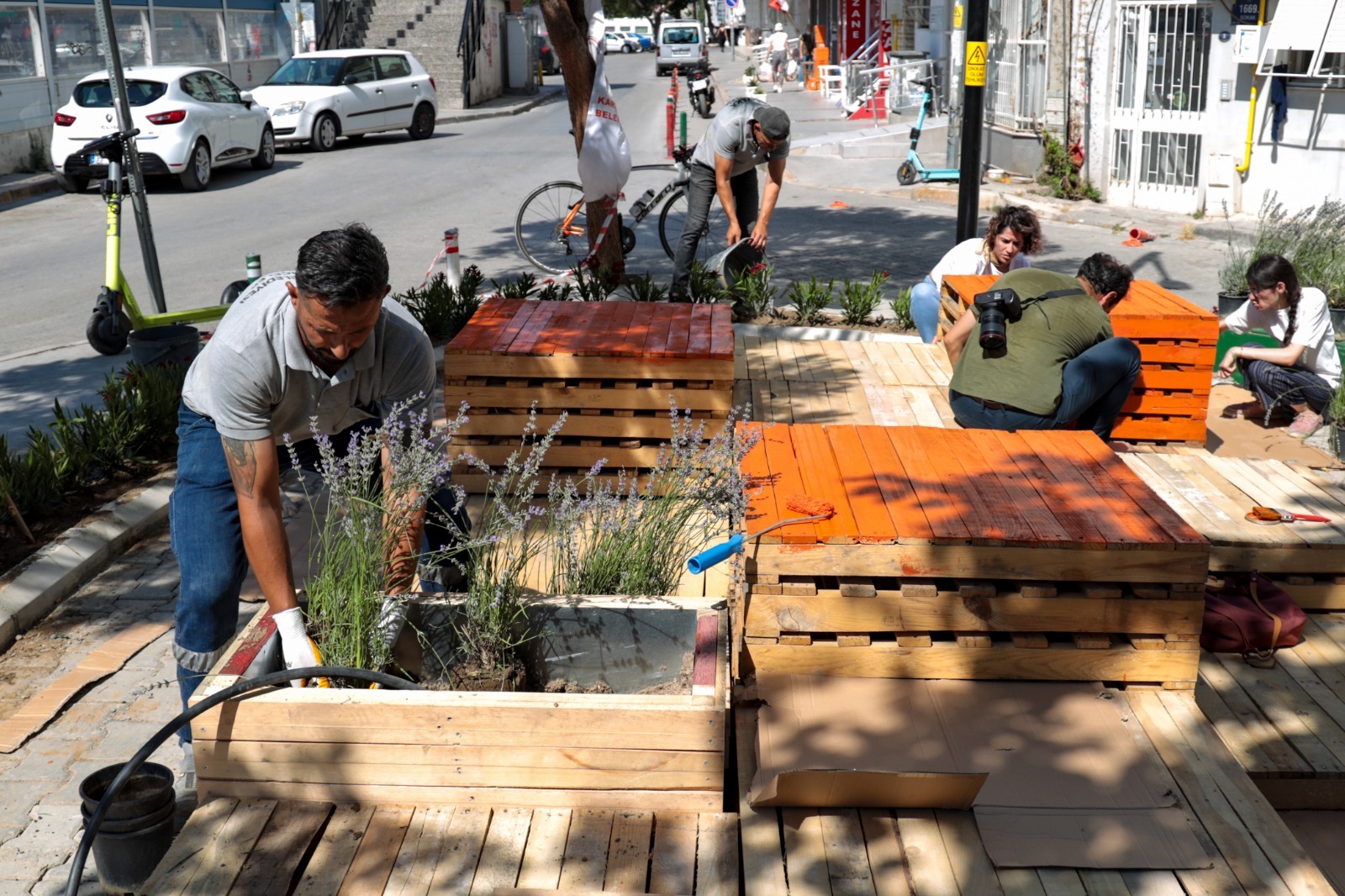Innovative urbanism practices transform public spaces in Izmir
August 18, 2022

With these tactical urbanism interventions, implemented with the participation of local citizens, it is expected that the existing functions of the relevant public spaces will be strengthened and their utilization will increase.
UNDP Türkiye and Karşıyaka Municipality joined forces and revitalized two public spaces in the Tersane district as part of the efforts to create inclusive, resilient and sustainable cities
Ankara, 18 August 2022 – United Nations Development Programme (UNDP) realized an initiative in two areas in Izmir within the framework of sustainable urban development with 'tactical urbanism' practices, which means making spatial improvements in public spaces with rapid, low-cost, and effective interventions. Two separate opening ceremonies of the spaces will take place in the Tersane district on 22 August 2022 Monday at 18.00. The works carried out by UNDP, with the financial support of the Japanese Government, in collaboration with Karşıyaka Municipality and Japanese design team Sotonoba, aim to improve and increase the potential of the public spaces that are idle or lacking features with innovative solutions.
This initiative, which aims to create a scalable model that can be reproduced in different scales and geographies, was implemented in two areas in the Tersane district of Karşıyaka. The Japanese design team, Sotonoba, consisting of place-making experts, reflected their findings in the concept designs by interpreting the analyses made during field visits, the existing textures of the spaces, and the surveys done with the residents of the neighborhood.
One of the interventions is to find solutions to the sheltering and health problems of stray cats, which are abundant in the area, and to create a pleasant space for local residents; while the other intervention aims to reactivate a pocket park that had lost its greenery and turn it into an attractive resting and socializing place. The project promoted Sustainable Development Goals 11 (Sustainable Cities and Communities), 12 (Responsible Consumption and Production), 13 (Climate Action), 16 (Peace, Justice and Strong Institutions), and 17 (Partnerships for Goals).
“In addition to being physical places, public spaces enable vital interactions such as solidarity, socialization, and co-creation.” said Gökçe Tuna, Head of Exploration at UNDP Türkiye Accelerator Lab. “Moving away from conventional methods in the design and construction stages of these areas, and including innovative practices offer concrete opportunities such as transparency, involvement of people in decision making processes and sustainability to both municipalities and residents. We are trying to make the benefits that emerge from this initiative visible, and create scalable models to spread across the country.”
Today, cities are home to more than half of the world's population, and it is estimated to reach 70 percent by 2050. Urban areas, which have become a lot more complex, are the key points socially, economically and ecologically. Making cities, which are the centers of life, more inclusive, safe, durable and sustainable will be possible with the participation of local governments, all public institutions, non-governmental organizations and citizens.
“The rapid urbanization which started with migration from east to west in the 1980s led to the formation of an unplanned and dense urban fabric in Izmir.” said Özlem Şenyol Kocaer, Urban Design Manager at Karşıyaka Municipality. “It is very valuable for our municipality to be a stakeholder in a public space transformation process that covers climate resilience, tactical urbanism and citizen participation in the Tersane district, where even the smallest public space is valuable. We aim to reproduce this initiative, which we have implemented in rapid and effective cooperation with UNDP Türkiye, as an exemplary transformation model in other neighborhoods of the district that lack infrastructure.”
With these tactical urbanism interventions, implemented with the participation of local citizens, it is expected that the existing functions of the relevant public spaces will be strengthened and their utilization will increase. After the monitoring and evaluation work is completed, the aim is to transform the interventions made in the relevant areas into a model to be replicated in other parts of Türkiye, especially in Karşıyaka.
For photos please click here.
Contact: Gökçe Tuna, Head of Exploration, UNDP Türkiye Accelerator Lab, gokce.tuna@undp.org

 Locations
Locations